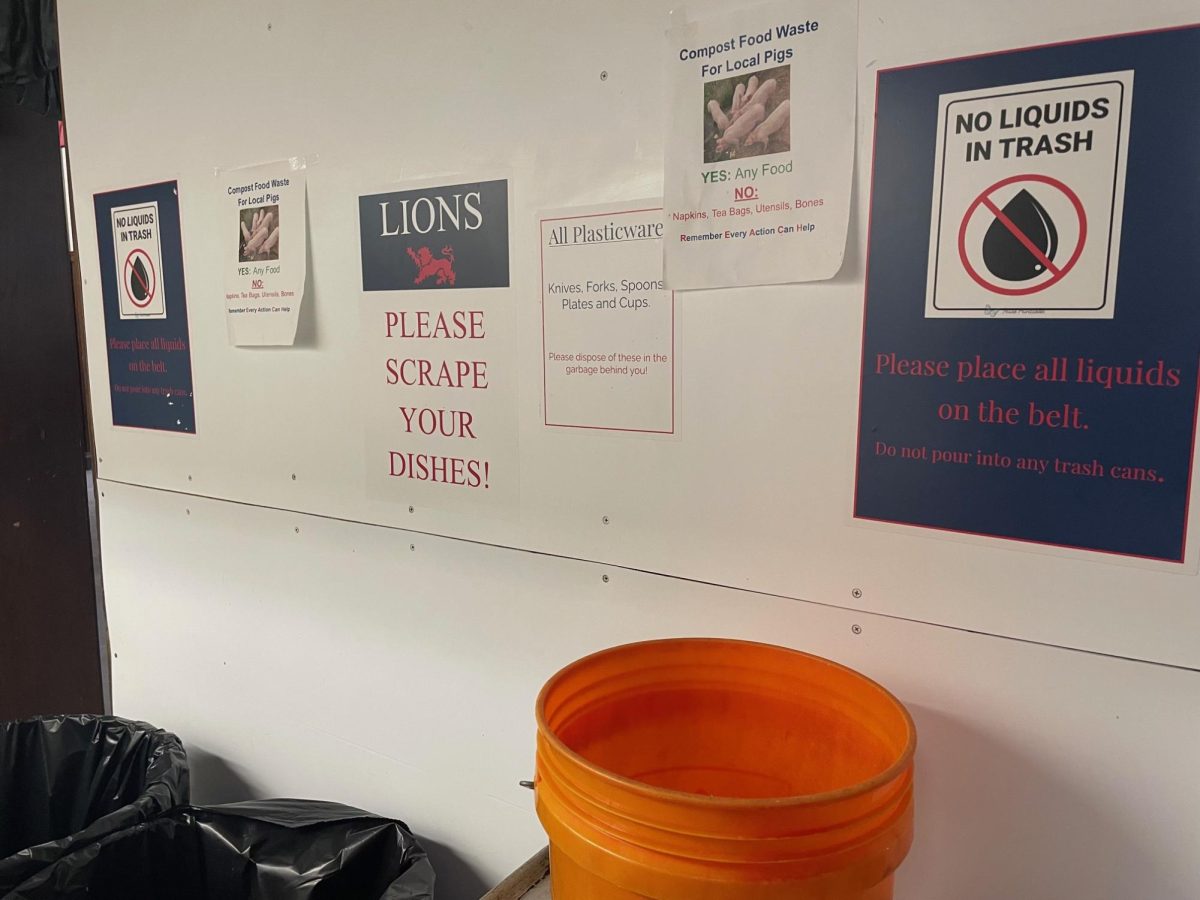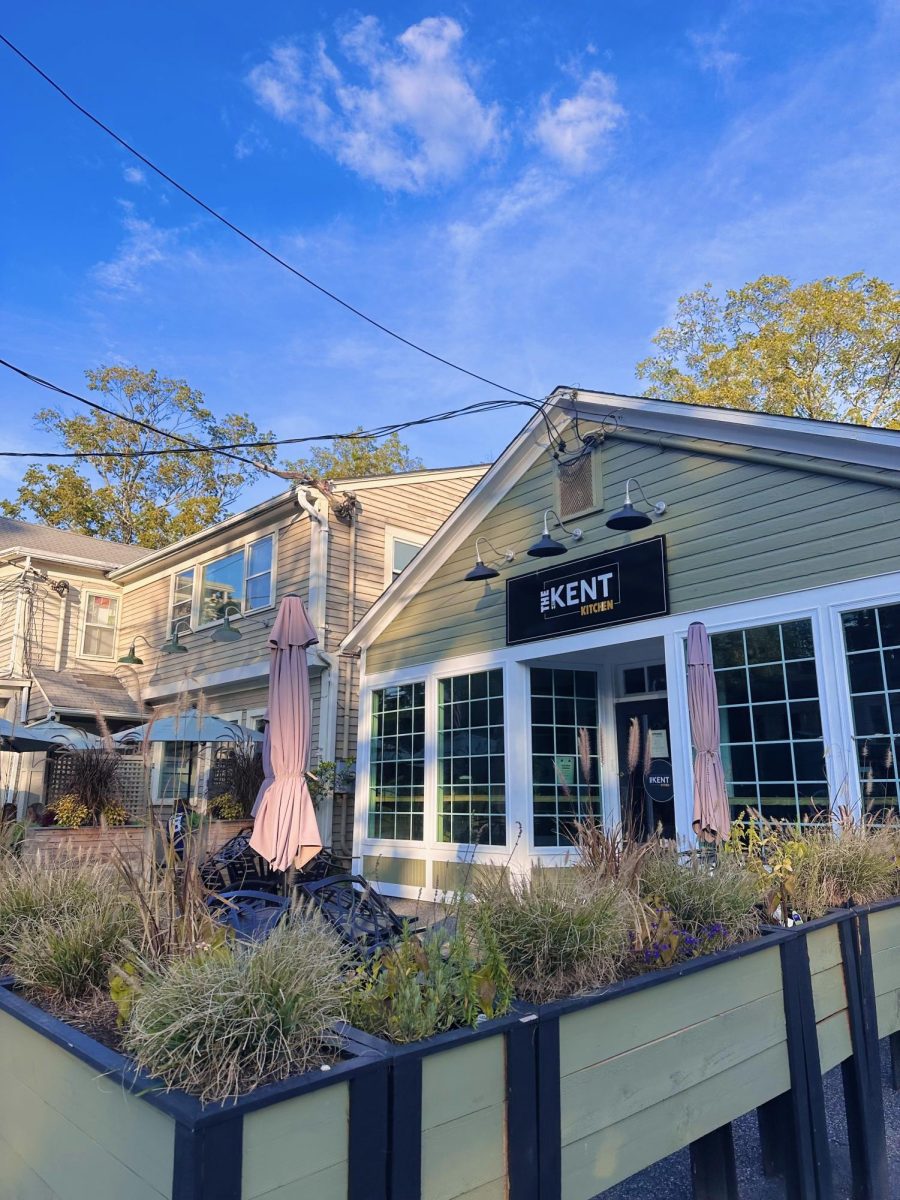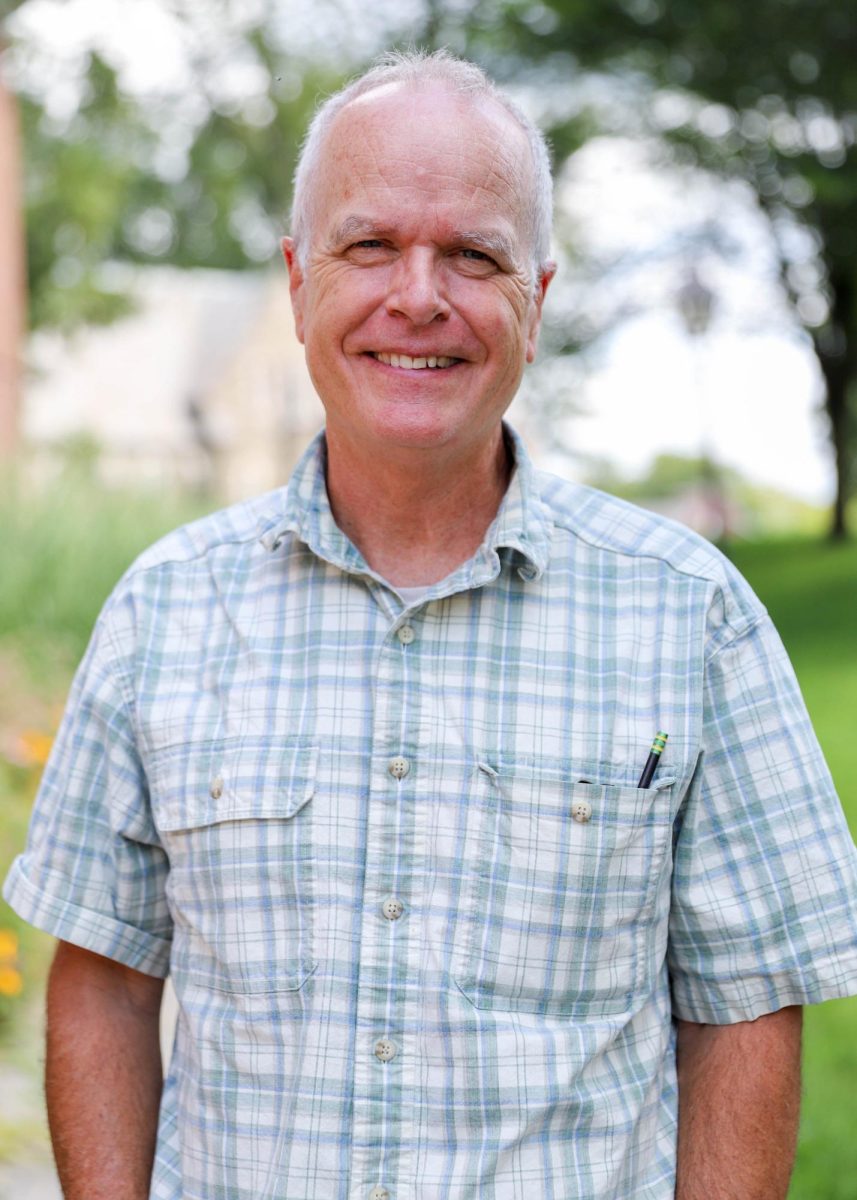In the past few terms, observant students began to note a quiet yet significant shift in the dining hall: convenient disposable paper plates and plastic cutlery have vanished from the bagel and cereal bar, replaced with sturdy reusable alternatives that had barely warranted a notice. Meanwhile, a composting station materialized by the dish return of the dining hall, diverting food waste from the landfill and into nutrient-dense fertilizer. These imperceptible little actions—from choosing a metal spoon or scraping leftovers into a different bin—all contribute to a grander scheme of a greener future.
However, these visible changes in the dining hall are simply the surface of Kent’s evolution in sustainability. Behind the scenes, the Sustainability Task Force of Kent School strives to drive more renewable initiatives into the students’ daily lives and promote a more environmentally conscious community.
In an interview with a committee member, Mr. Hudson talks about the task force’s aim for long-term commitment, creating practices that will endure for decades. One major component in doing so would be limiting the usage of disposable materials. Several recycling programs have been initiated throughout the campus, such as the bottle-recycling in both Field and Case. “The seemingly small acts of organizing litter gives students the opportunity to become more conscious of their daily actions,” said Mr. Hudson. Over time, these small-scale practices would develop into subconscious habits.
Beyond reducing waste, Kent School maintains sustainability efforts through conscious local purchasing. For instance, composting waste from the dining hall would be transported to a local pig farmer. Through building meaningful relationships with nearby farms and businesses, the school can shrink its carbon footprint and promote small businesses.
Over the years, energy infrastructure improvements were incorporated into the Kent School campus: solar panels supply the majority of electrical energy in the ice rink and athletic center.
In a more recent example of energy conservation, the girls’ dormitory Hoerle Hall utilizes a unique system for heating and cooling, known as geothermal heat pumps. This efficient technology takes advantage of the stable temperature of the shallow earth to regulate indoor temperatures. In the winter, it would transfer the heat from the ground to indoors; in the summer, the system would reverse, absorbing the indoor heat and releasing it into the ground.
Mr. Hudson further elaborated on the hopeful proposals for more impactful transformations to the campus infrastructure : water conservation. Some designs suggested by the council include low-flow showerheads, reinsulated plumbing, and future incorporation of geothermal energy into other dormitories.
However, the convenience of disposable goods still undermines progress. In the dining hall, the absence of disposable dishware has led to a surge in paper cups. In the past year alone, 129,000 paper cups, 45,000 plastic spoons, and 17,000 plastic forks were used—all of which ended up in landfills. For a better understanding, visualize each cup, spoon, and fork stacked together; the pile would tower over the clock tower by the chapel.
Change is possible, and it depends on simple, mundane choices. As alternatives to paper cups, Kent provides a variety of mugs and glasses. Convenient return stations had been stationed at every dorm for collecting used dishware. Mrs. Sokonicki—a member of the Sustainability Task Force—encouraged behavior incentives. She proposed an idea to provide a pizza party with the money from recycling the plastic bottles. Student-led sustainability initiatives, such as the Biofilia Club and the Environmental Club, promote progress through deepening education on how individual actions allow for collective impact.
True sustainability will only emerge through consistent participation and environmental consciousness from the student body. Certain infrastructure improvements, like the composting station and local purchasing, simply set a general foundation; lasting change depends on awareness of everyone’s daily choices. The progress to become sustainable isn’t just about reducing waste—it’s about taking responsibility for our future.








